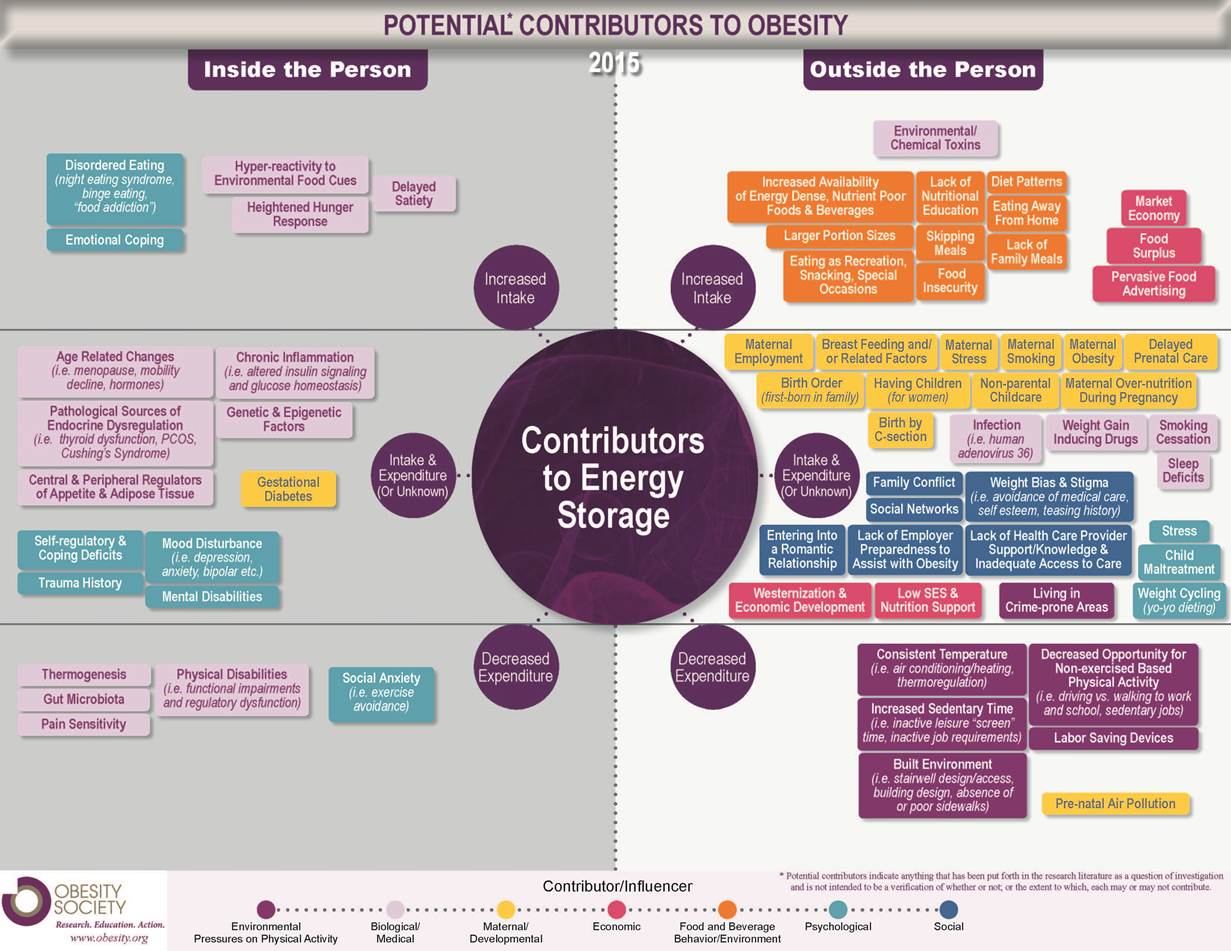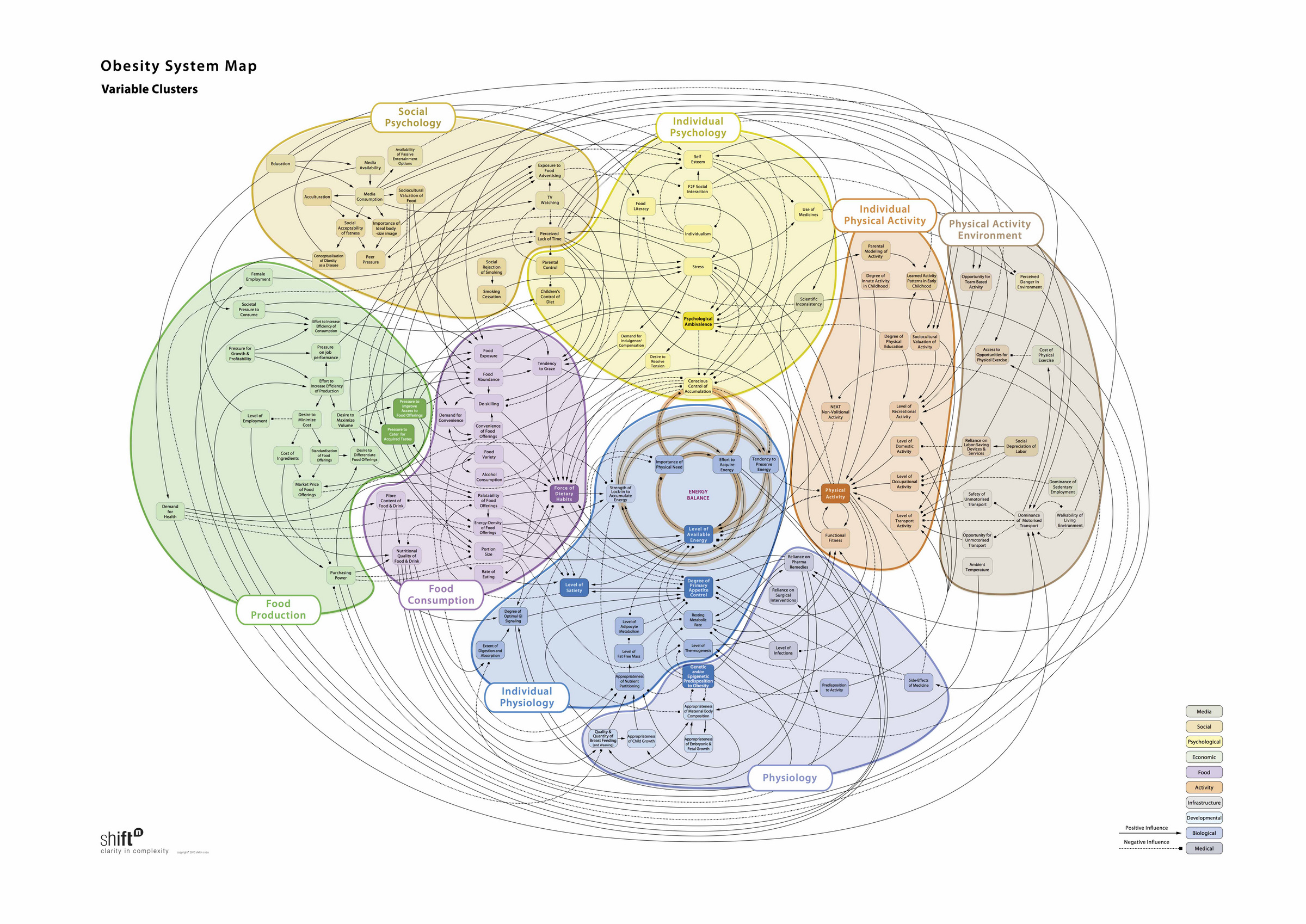
Who Cares Why Obesity Is Going Global?
The new publication in Lancet presents a stark picture of obesity going global:
If post-2000 trends continue, the probability of meeting the global obesity target is virtually zero. Rather, if these trends continue, by 2025, global obesity prevalence will reach 18% in men and surpass 21% in women; severe obesity will surpass 6% in men and 9% in women. Nonetheless, underweight remains prevalent in the world’s poorest regions, especially in south Asia.
A companion commentary notes that the many calls to action on global obesity are ungrounded by evidence:
Many proposals exist for comprehensive sets of advisory and legislative policies aimed at tackling obesity. Such presentations greatly outnumber interventions that have robust evidential support. Evaluations that use methods that allow for reasonable causal inference have been applied to several of these approaches with generally disappointing results, yet they have had little influence on the flow or content of the many “calls to action” on global obesity.
Everyone, it seems, has solutions for obesity. Eat well! Let’s move! Put healthy foods everywhere! Activate employers! Make schools the heart of health! Integrate physical activity every day every way! Tax those darn sodas!
 But curiosity about obesity itself is totally lacking. As thoughtful as these two papers in Lancet are, you will find no consideration of the need to understand obesity and its causes. These papers and most policy proposals for addressing obesity simply assume that obesity is a nutrition problem.
But curiosity about obesity itself is totally lacking. As thoughtful as these two papers in Lancet are, you will find no consideration of the need to understand obesity and its causes. These papers and most policy proposals for addressing obesity simply assume that obesity is a nutrition problem.
 The reality is that the growing prevalence of obesity is a problem of complex, adaptive systems. Those systems lead people and animals to store too much energy in the form of adipose tissue that harms their health. Without understanding these systems and how they interact. Taking random shots at this problem will have little effect.
The reality is that the growing prevalence of obesity is a problem of complex, adaptive systems. Those systems lead people and animals to store too much energy in the form of adipose tissue that harms their health. Without understanding these systems and how they interact. Taking random shots at this problem will have little effect.
We have spent three decades pushing hard on simplistic solutions for obesity that simply don’t work. It’s time to get serious about research to deliver a deeper understanding of the problem and solutions grounded in evidence for their effectiveness.
Click here for the Lancet publication of the NCD Risk Factor Collaboration. Click here for the companion commentary. Click here for perspective on obesity as a problem of complex adaptive systems.
Earth, photograph by Luca Parmitano via flickr
Subscribe by email to follow the accumulating evidence and observations that shape our view of health, obesity, and policy.
April 5, 2016

April 05, 2016 at 10:11 am, Stephen Phillips said:
It is hard to fool mother nature.
Humans have an adaptive genetic advantage…the ability to easily store adipose tissue … it has been part of our evolutionary success story. However genes adaptive in one place and time can become maladaptive in another place and time …voila globesity
We favor surplusing of adipose tissue and resist deficiting adipose tissue.
Our lifestyles have changed not our genes …we are still stoneagers living within the abundant trappings of the 21st century..
A WAIST IS A TERRIBLE THING TO MIND
Stephen Phillips
American Association of Bariatric Counselors
April 05, 2016 at 11:22 am, Ted said:
Thanks, Stephen.
April 05, 2016 at 11:01 am, Allen Browne said:
Wow! The complex adaptive systems stuff is exciting – and mind blowing.
April 05, 2016 at 11:23 am, Ted said:
Isn’t it? Thanks, Allen!